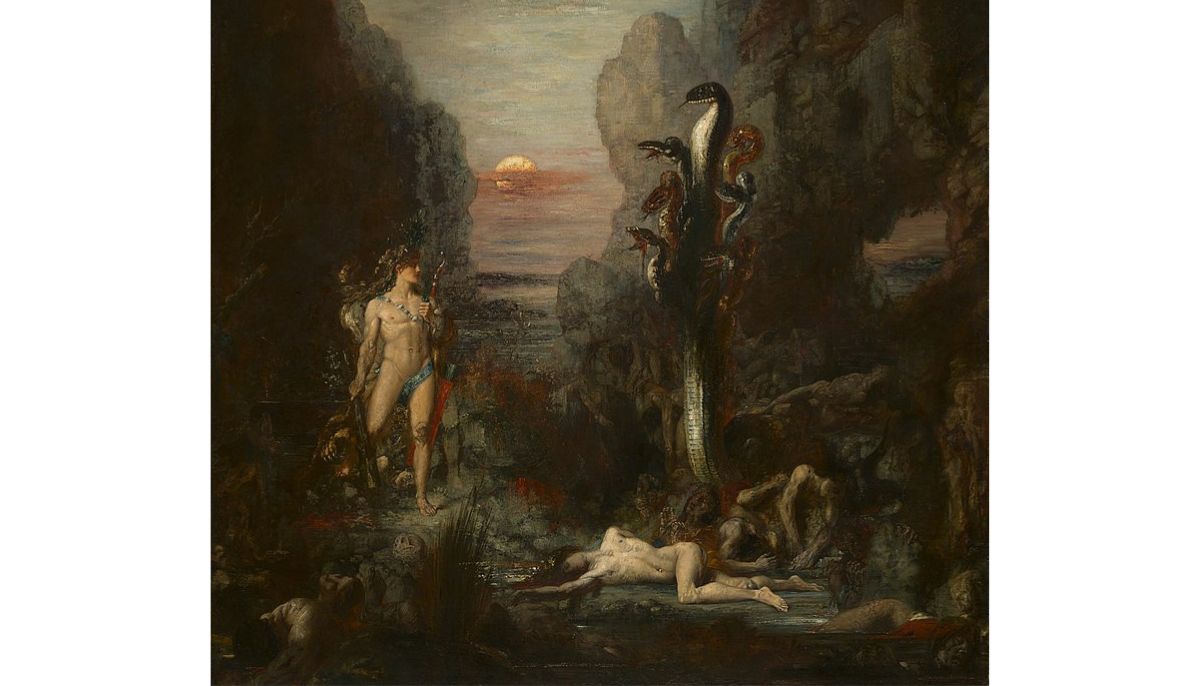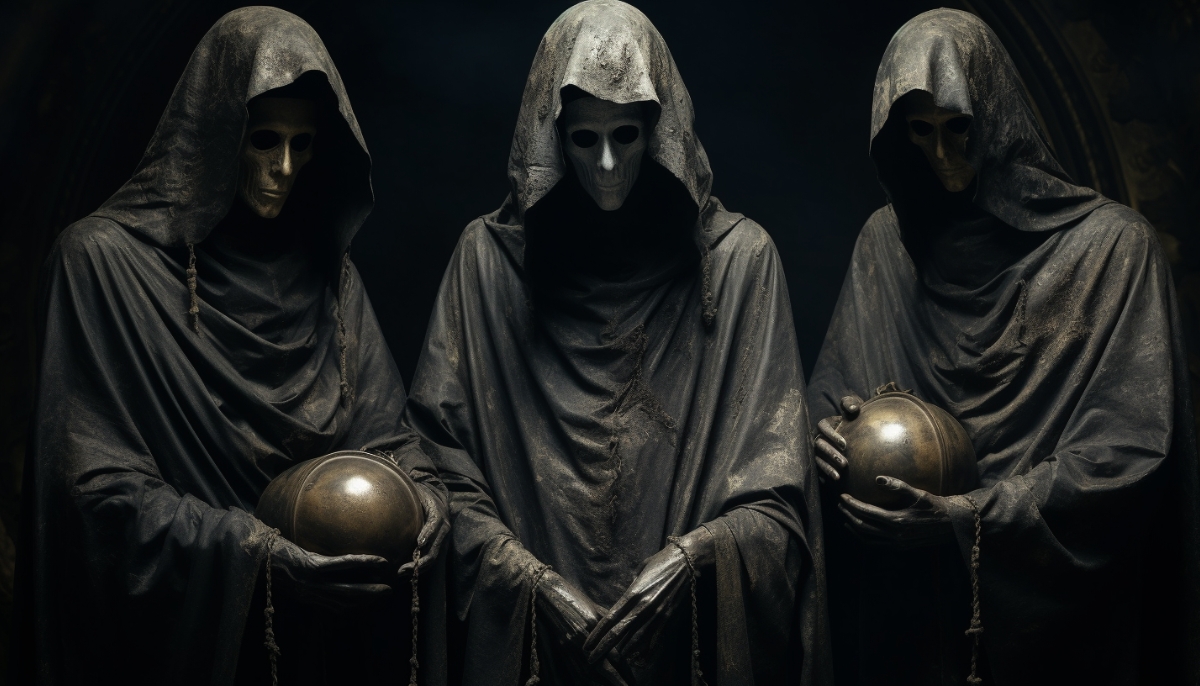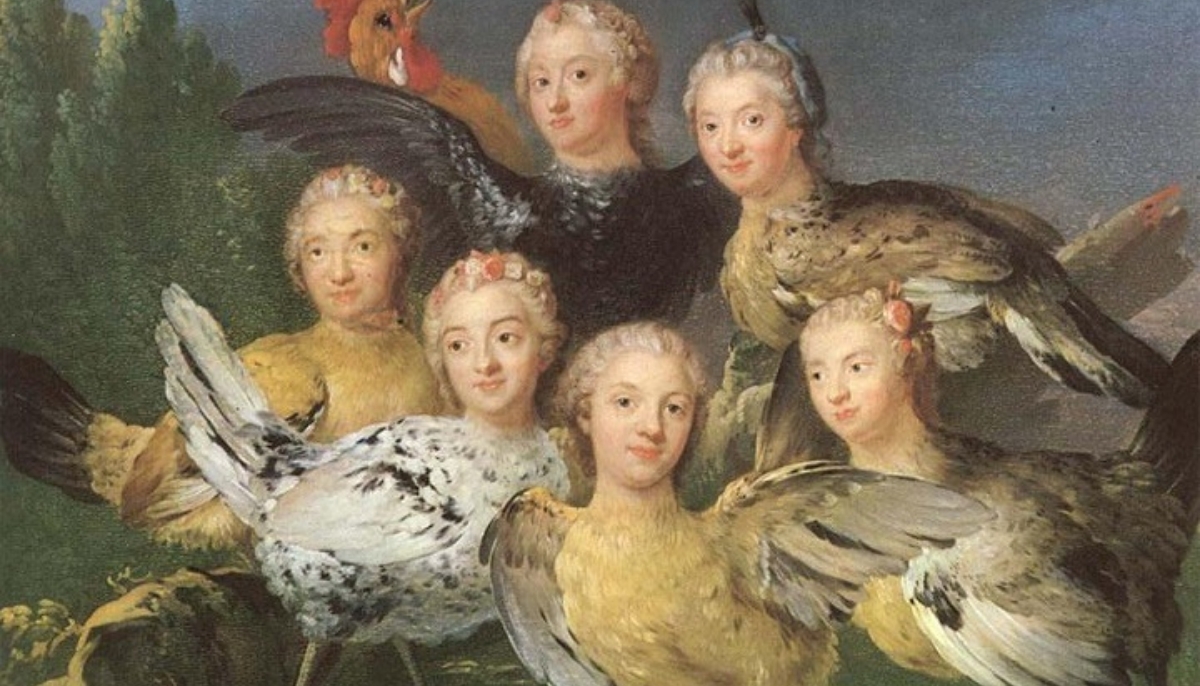In the annals of Greek mythology, the name “Hydra” conjures images of a multi-headed, venomous serpent lurking in the swamps of Lerna.
This monstrous creature, born of ancient primordial forces, posed an insurmountable challenge to even the mightiest of heroes. Among them, Hercules would face this formidable adversary as part of his Twelve Labors, an ordeal that would test his mettle, cunning, and valor to their limits.
This article delves into the gripping tale of Hercules’ epic battle against the Lernaean Hydra, an encounter that has echoed through the ages as a testament to the indomitable spirit of mortal heroes.
What did Hydra look like
The Hydra, a monstrous creature from Greek mythology, was a colossal, serpentine water-dweller known for its malevolent nature.
According to ancient accounts, it possessed numerous heads, with some variations suggesting as many as fifty. The most widely recognized number of heads, however, is nine. One of these was immortal, making the Hydra an especially formidable adversary.
What are Hydra’s powers?
The Hydra’s notoriety extended beyond its physical appearance. Its breath and blood were extraordinarily toxic, rendering even the scent lethal.
Legend had it that the Hydra’s lair in Lake Lerna considered an entrance to the Underworld, added to the aura of dread surrounding this creature.
A particularly chilling aspect of the Hydra’s abilities was its power of regeneration. For each head severed in battle, two new ones would grow in its place, presenting a seemingly insurmountable challenge to any would-be assailant.
Hydra in Greek Mythology
In Greek mythology, few creatures are as notorious and formidable as the Hydra. This fearsome serpent has captured the imagination of storytellers for millennia.
Its encounters with the mighty Hercules, one of the greatest heroes in Greek mythology, stand as a testament to the enduring struggle between mankind and monstrous adversaries.
This section delves into the origins of the Hydra, the various sources that depict its menacing presence, and the legendary clashes between this monstrous beast and the indomitable Hercules.
What sources tell us about Hydra?
The story of the Hydra is a tale woven into the fabric of Greek mythology, but like many ancient legends, it has been passed down through many sources.
From the works of early poets like Hesiod to the writings of scholars like Apollodorus and later Roman authors, subtle variations and unique perspectives shape our understanding of this formidable creature.
These nuances provide a fascinating glimpse into how myths evolve over time and across different cultural contexts, ultimately enhancing the enigmatic allure of the Hydra.
Hydra and Hercules

The encounter between Hercules and the Hydra is one of the most iconic episodes in Greek mythology, exemplifying the hero’s valor, resourcefulness, and indomitable spirit. The second of Hercules’ Twelve Labors, this task was set upon him by King Eurystheus, a ruler known for his enmity towards the hero.
The Hydra was no ordinary serpent. Dwelling in the swamps of Lerna, it was a monstrous creature, the offspring of Typhon and Echidna, with venomous breath and a body that seemed to stretch endlessly.
Hercules and Iolaus
As Hercules approached the Lernaean swamps, he was accompanied by his nephew Iolaus, who played a crucial role in this epic battle. Recognizing the challenge ahead, Hercules devised a cunning strategy. Armed with a golden sword gifted to him by Athena and clad in the impenetrable skin of the Nemean Lion, Hercules stepped forward to face the Hydra.
The battle was fierce and unrelenting. As Hercules swung his sword, Iolaus seared the neck stumps with a torch, preventing new heads from emerging. The stench of sulfur and the swamp’s searing heat added to the struggle’s intensity. It was a grueling test of strength and wit, a true contest between mortal and monster.
Despite the Hydra’s formidable defenses, Hercules and Iolaus worked in unison. With each swing of the sword, another head was dispatched, and with each searing, the threat of regrowth was nullified. The battle was long, and the swamp echoed with the Hydra roars and the hero’s determined grunts.
The Death of Hydra
Finally, after a relentless onslaught, Hercules dealt the decisive blow. With a final swing, he severed the Hydra’s last head and buried it deep beneath the earth. Hercules placed a massive boulder over the burial site to ensure it could never regenerate, forever sealing the Hydra’s fate.
Hercules emerged from this epic struggle victorious, his clothes stained with the Hydra’s venom, a testament to the perilous nature of the battle. The defeated creature’s venom was said to be deadly, and its blood was rumored to have potent powers.
Hercules wisely collected some of both, recognizing their potential utility in his future quests.
Similar Greek Monsters to Hydra
The Hydra, with its multiple heads and regenerative abilities, shares similarities with other creatures in Greek mythology, each embodying its own unique threats and symbolic meanings.
From the multi-headed hound Cerberus guarding the gates of the Underworld to the fire-breathing Chimera and the enigmatic Lernaean lake, these monsters serve as potent metaphors for the various trials and tribulations heroes face.
The legend of the Hydra continues to captivate audiences, a testament to its enduring power as a symbol of adversity and the triumph of human ingenuity over formidable challenges.
Its presence in the pantheon of Greek monsters is a testament to ancient storytellers’ creativity and imagination, leaving an indelible mark on the world’s cultural heritage.
Want to know more about the creatures and monsters of Greek Mythology?

Explore more articles like this in our broader series on Greek monsters. To delve even deeper into the world of mythical creatures, be sure to check out our comprehensive hub article on the monsters of Greek mythology.






